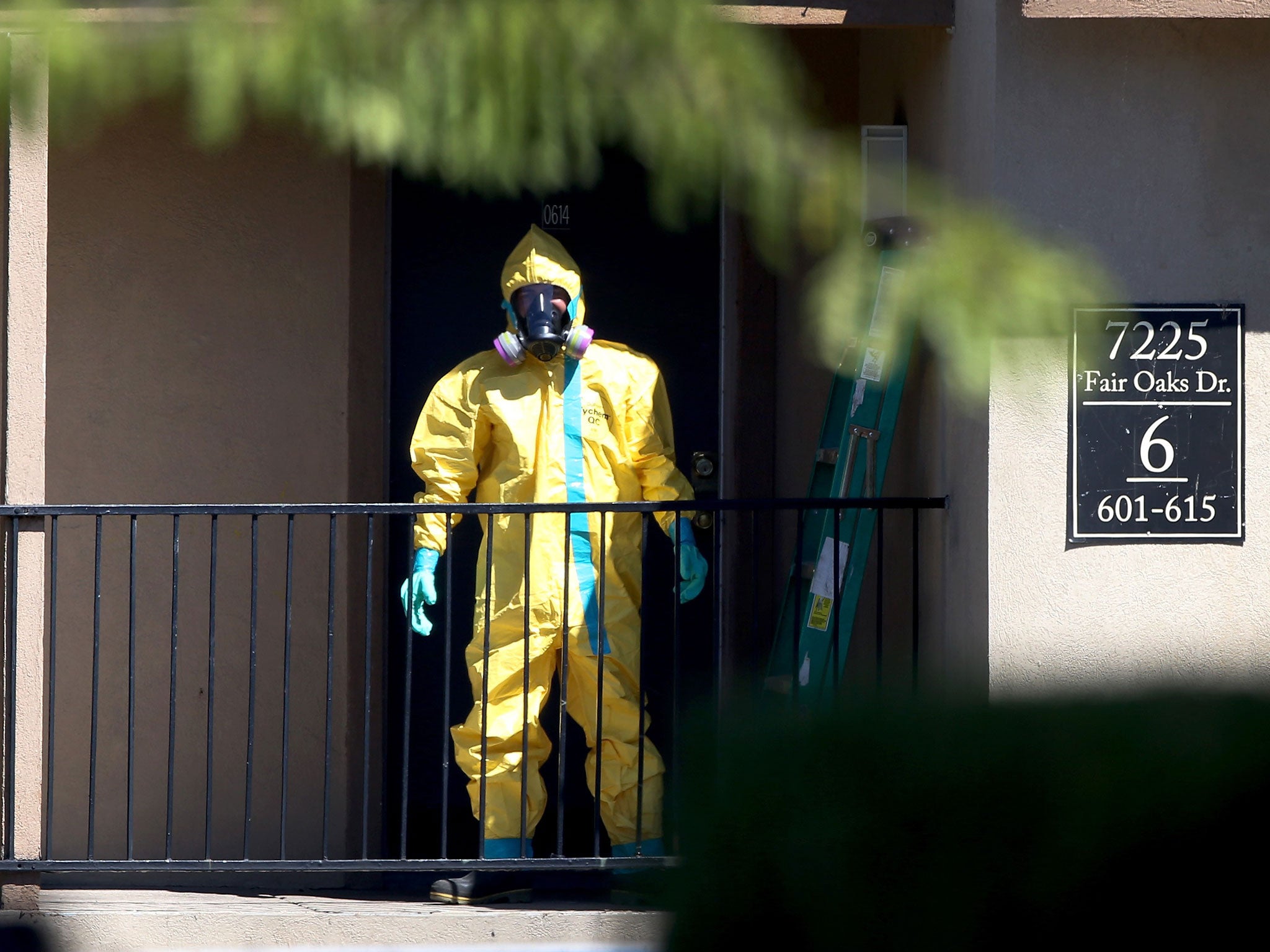Ebola in US: Thomas Eric Duncan 'fighting for his life in hospital' after ZMapp drug supplies run out
He has not been given experimental treatments given to previous patients

The first person diagnosed with Ebola in the US is fighting for his life in hospital and does not seem to have been given any experimental medicines used to treat previous patients.
American doctors and aid workers have survived the disease after being given the drug ZMapp, although it is impossible to tell whether it cured them or their recovery was caused by other factors, but Thomas Duncan has not received it.
He became ill after arriving in Texas from Liberia two weeks ago, heightening fears that the deadly virus could spread from West Africa, where the epidemic started in March and has since killed more than 3,400 people.
Dr Thomas Frieden, director of America's Center for Disease Control and Prevention (CDC), told CNN Mr Duncan was "fighting for his life" at a hospital in Dallas, Texas.
He said doses of ZMapp were “all gone” and that the drug, produced by US-based Mapp Biopharmaceutical, is “not going to be available anytime soon.”
A second experimental drug, made by Canada's Tekmira Pharmaceuticals Corp, “can be quite difficult for patients to take,” he said, adding that the doctor and the patient's family would decide whether to use it.
“As far as we understand, experimental medicine is not being used,” Dr Frieden said. “It's really up to his treating physicians, himself, his family what treatment to take.”

He added that it was "concerning" that doctors at the hospital he visited days before being admitted failed to diagnose Ebola, instead sending him home with antibiotics.
The Texas Health Presbyterian Hospital in Dallas confirmed that Mr Duncan was in a critical condition on Monday as the operation to trace anyone who may have had contact with him continues.
None of the 38 people being monitored have yet shown any symptoms, which are similar to a cold or flu in the early stages before Ebola develops into vomiting, diarrhoea and internal and external bleeding.
Ebola is transmitted through contact with bodily fluids such as blood or saliva and an expert said the chance of it spreading in the US were small.
Dr Edward Wright, a virology expert at the University of Westminster who is currently testing a possible Ebola vaccine in Oxford, told The Independent that because Mr Duncan was not showing symptoms until shortly before he went into hospital, he was not a high risk.
“The reason the virus is causing such a problem in West Africa is because the world was notified too late to provide the medical infrastructure needed to stop the spread, but in the US and Europe it’s already in place," he added.
In Nebraska, another hospital was preparing for the arrival of an Ebola patient who contracted the virus in Liberia.
The American man, expected to arrive on Monday, has not been officially identified but is believed to be Ashoka Mukpo, a freelance cameraman for NBC News who contracted Ebola in Liberia.
Additional reporting by Reuters
Join our commenting forum
Join thought-provoking conversations, follow other Independent readers and see their replies
Comments
Bookmark popover
Removed from bookmarks